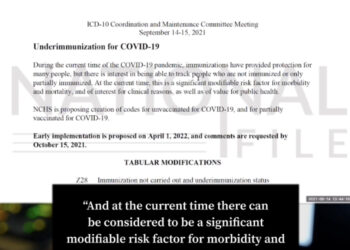Last Updated on April 1, 2020
Less than two years after the World Health Organization aggressively campaigned to have “gaming disorder” recognized as a legitimate medical condition, the agency has now launched a campaign telling people to play video games during the coronavirus pandemic.
In 2018, the WHO officially recognized “gaming disorder” as a mental health condition and provided the following description:
Gaming disorder is characterized by a pattern of persistent or recurrent gaming behaviour (‘digital gaming’ or ‘video-gaming’), which may be online (i.e., over the internet) or offline, manifested by:
- impaired control over gaming (e.g., onset, frequency, intensity, duration, termination, context);
- increasing priority given to gaming to the extent that gaming takes precedence over other life interests and daily activities; and
- continuation or escalation of gaming despite the occurrence of negative consequences. The behaviour pattern is of sufficient severity to result in significant impairment in personal, family, social, educational, occupational or other important areas of functioning.
Less than a year later, the WHO removed “gender identity disorder” from its list of mental illnesses.
READ MORE: VIDEO: Japanese VICE PM Says WHO Should Be Renamed ‘Chinese Health Organization’
The WHO seemed to have suddenly changed its stance on gaming, at least for the short term, last week as it launched the “Play Apart Together” campaign to fight the coronavirus.
The campaign urges people to stay indoors and play video games during the crisis, and is backed by industry titans such as Riot Games, Activision, Twitch, and YouTube Gaming.
Gamers have claimed that the campaign is further proof that while the corporate and global establishment is quick to use video games as a marketing tactic to “connect with the youth” and capitalize on the massive market demand for digital entertainment, it continues to shame and oppress those who actually play the games in a non-casual fashion.





















